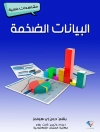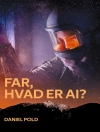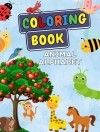Internet research spans many disciplines. From the computer or information s- ences, through engineering, and to social sciences, humanities and the arts, almost all of our disciplines have made contributions to internet research, whether in the effort to understand the effect of the internet on their area of study, or to investigate the social and political changes related to the internet, or to design and develop so- ware and hardware for the network. The possibility and extent of contributions of internet research vary across disciplines, as do the purposes, methods, and outcomes. Even the epistemological underpinnings differ widely. The internet, then, does not have a discipline of study for itself: It is a ?eld for research (Baym, 2005), an open environment that simultaneously supports many approaches and techniques not otherwise commensurable with each other. There are, of course, some inhibitions that limit explorations in this ?eld: research ethics, disciplinary conventions, local and national norms, customs, laws, borders, and so on. Yet these limits on the int- net as a ?eld for research have not prevented the rapid expansion and exploration of the internet. After nearly two decades of research and scholarship, the limits are a positive contribution, providing bases for discussion and interrogation of the contexts of our research, making internet research better for all. These ‘limits, ’ challenges that constrain the theoretically limitless space for internet research, create boundaries that give de?nition to the ?eld and provide us with a particular topography that enables research and investigation.
Jadual kandungan
Are Instant Messages Speech?.- From MUDs to MMORPGs: The History of Virtual Worlds.- Visual Iconic Patterns of Instant Messaging: Steps Towards Understanding Visual Conversations.- Research in e-Science and Open Access to Data and Information.- Toward Information Infrastructure Studies: Ways of Knowing in a Networked Environment.- From Reader to Writer: Citizen Journalism as News Produsage.- The Mereology of Digital Copyright.- Traversing Urban Social Spaces: How Online Research Helps Unveil Offline Practice.- Internet Aesthetics.- Internet Sexualities.- After Convergence: You Tube and Remix Culture.- The Internet in Latin America.- Campaigning in a Changing Information Environment: The Anti-war and Peace Movement in Britain.- Web Content Analysis: Expanding the Paradigm.- The Regulatory Framework for Privacy and Security.- Toward Nomadological Cyberinfrastructures.- Toward a Virtual Town Square in the Era of Web 2.0.- “The Legal Bit’s in Russian”: Making Sense of Downloaded Music.- Understanding Online (Game)worlds.- Strategy and Structure for Online News Production – Case Studies of CNN and NRK.- Political Economy, the Internet and FL/OSS Development.- Intercreativity: Mapping Online Activism.- Internet Reagency: The Implications of a Global Science for Collaboration, Productivity, and Gender Inequity in Less Developed Areas.- Strangers and Friends: Collaborative Play in World of Warcraft.- Trouble with the Commercial: Internets Theorized and Used.- (Dis)Connected: Deleuze’s Superject and the Internet.- Language Deterioration Revisited: The Extent and Function of English Content in a Swedish Chat Room.- Visual Communication in Web Design – Analyzing Visual Communication in Web Design.- Feral Hypertext: When Hypertext Literature Escapes Control.- The Possibilities of Network Sociality.- Web Search Studies: Multidisciplinary Perspectives on Web Search Engines.












